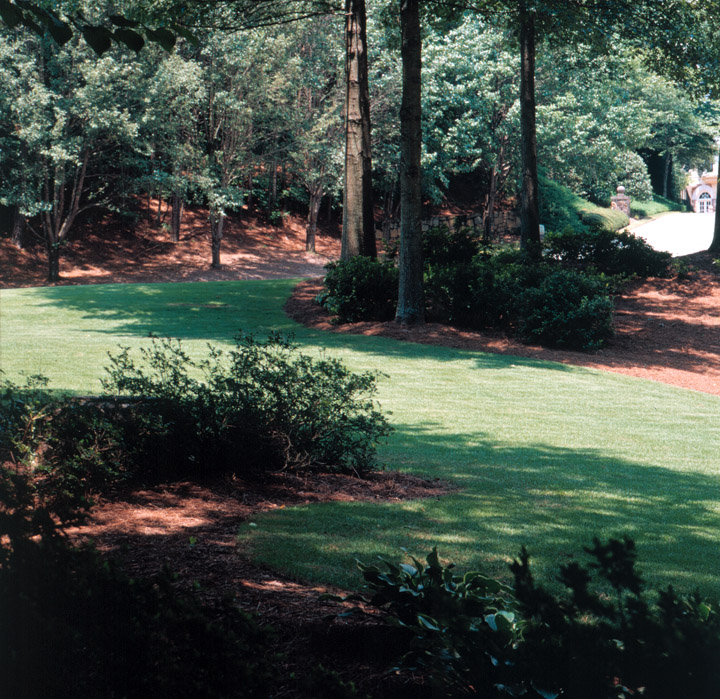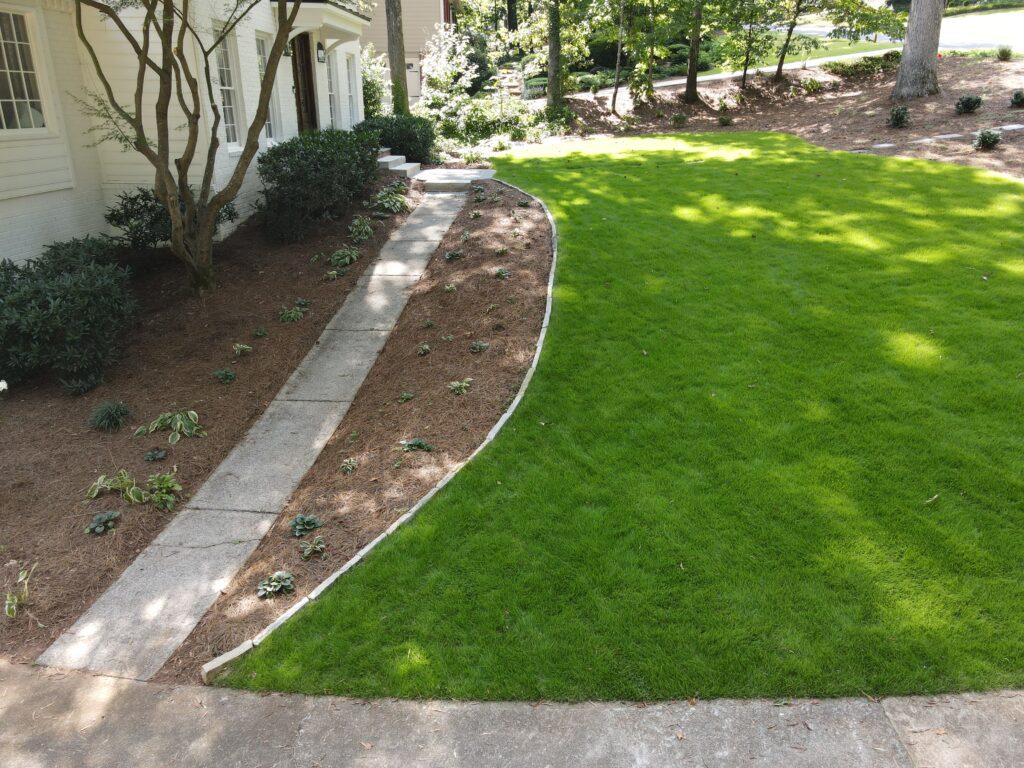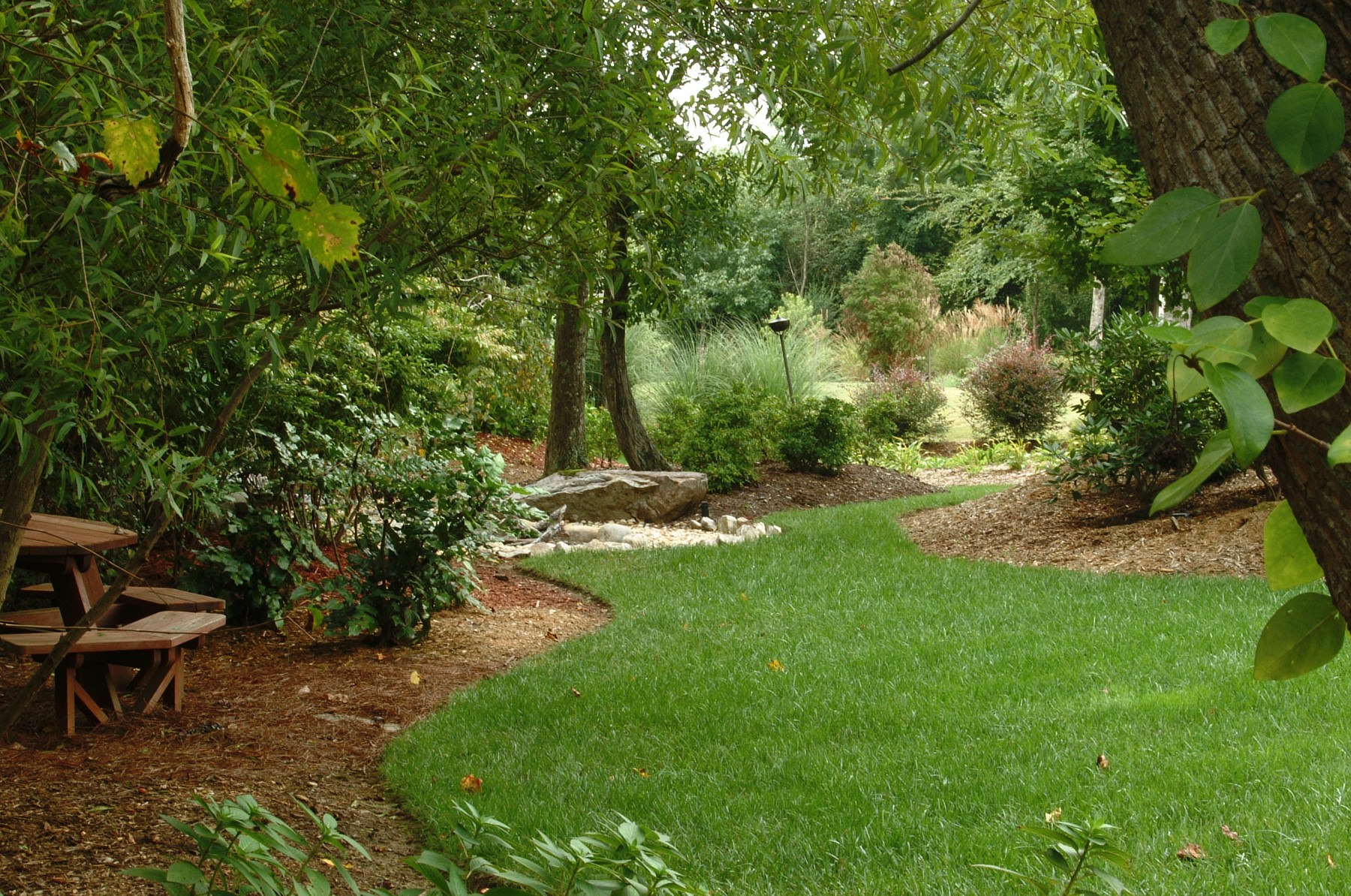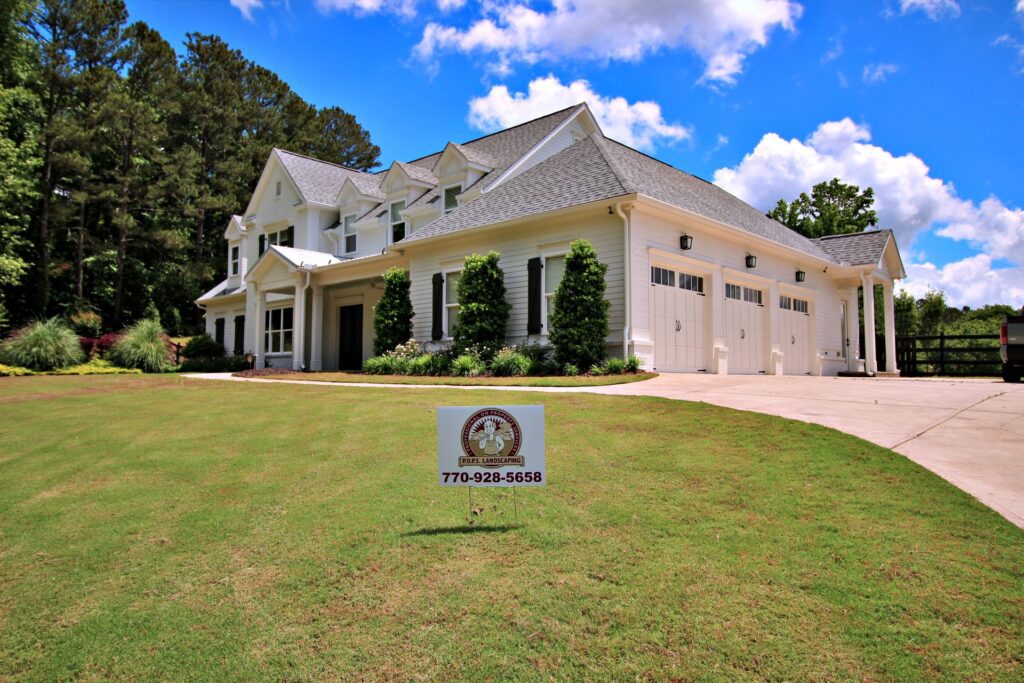Fertilizing your lawn and garden correctly during the summer in Georgia is essential for maintaining lush, healthy greenery. The hot and often dry climate can be challenging for plants, making it crucial to provide them with the right nutrients to thrive. So let P.O.P.S Landscaping help you combat the Georgia heat with our summer lawn care fertilizer how-to guide!


The Ideal Summer Lawn Care Fertilizer Schedule for Georgia
Cool Season Grasses
Cool-season grasses, like Kentucky bluegrass, perennial ryegrass, and tall fescue, thrive in the cool, temperate climate of Georgia. To ensure their optimal growth and health, it is important to fertilize these grasses at the right times, considering their growth patterns and tolerance for weather conditions. The best time to fertilize cool-season grasses in the cool months of late summer and early fall is around September or October. These months provide cooler temperatures, stimulating growth and allowing the grasses to take up and utilize the nutrients efficiently. Fertilization at this time promotes root development and helps the grasses to store nutrients for the following spring.
Warm Season Grasses
The best time to fertilize Warmer-season grasses is during their active growth period, which typically coincides with the warmer months. In Georgia, where warm-season grasses like Bermuda, St. Augustine, zoysia, centipede, and buffalo are commonly found, it is recommended to fertilize between May and September. When it comes to the type of fertilizer to use, choose one with a higher nitrogen content, as this nutrient is crucial for the healthy growth and lush appearance of these grasses. A slow-release fertilizer provides a steady release of nutrients over an extended period of time. Generally, warm-season grasses benefit from multiple applications throughout the growing season, such as every 6-8 weeks during active growth periods.
Summer Lawn Care Fertilizer Tips
Understanding Your Soil
Proper fertilization provides your lawn with necessary nutrients it may not be able to obtain naturally. Fertilizers contain essential elements like nitrogen, phosphorus, and potassium, which are vital for plant health and vitality. These nutrients aid in chlorophyll production and overall plant growth, resulting in lush green grass. However, it’s important to be cautious while fertilizing your lawn because improper fertilization techniques can burn the grass or cause unsustainable growth. Overfertilization can result in brown or yellow patches on your lawn and an unsustainable growth pattern that may weaken your lawn and make it more susceptible to diseases.
Before you begin the fertilization process, it’s important to understand your soil type and its condition. A simple soil test will help you determine its pH level and nutrient content. Most soil testing kits are available at local garden centers, or you can contact a trusted local lawn care service, like P.O.P.S Landscaping, for professional testing services. The results will guide you in choosing the right type and amount of fertilizer for your specific needs.
Choosing the Right Fertilizer for Georgia Summers
There are two main types of fertilizers: organic and synthetic. Each has its own benefits and drawbacks.
- Organic Fertilizers: These are derived from natural sources such as compost, manure, and bone meal. They release nutrients slowly, improving soil structure and promoting long-term soil health. Organic fertilizers are also great for garden beds and areas where you want to enhance soil quality over time.
- Synthetic Fertilizers: These are manufactured and contain concentrated nutrients. They provide a quick nutrient boost, easy to apply, and are ideal for lawns or plants that need immediate nutrients.
In Georgia, a balanced fertilizer with a ratio such as 10-10-10 (nitrogen, phosphorus, and potassium) is often recommended. However, the specific needs of your soil will be determined by the soil test.
Timing Your Fertilization In the Summer Heat
Timing is critical when it comes to fertilizing your lawn and garden. In Georgia, it’s best to fertilize in late spring or early summer, just as plants are entering their peak growing season. This timing ensures that plants have the nutrients they need to withstand the summer heat.
- Lawns: Fertilize warm-season grasses like Bermuda, Zoysia, and St. Augustine in late spring and again in mid-summer. These grasses thrive in the heat and benefit from the nutrients provided during their active growth.
- Gardens: For vegetables, flowers, and shrubs, apply fertilizer at the beginning of the growing season and again midway through the summer. This supports continuous growth and easy flowering.


How to Apply Summer Lawn care Fertilizer
How you apply fertilizer can impact its effectiveness so here are some tips for proper application:
- Lawns: Use a broadcast spreader for even distribution. Follow the manufacturer’s instructions for the correct setting on your spreader. Water your lawn thoroughly after fertilizing to help the nutrients penetrate the soil and reach the roots.
- Garden Beds: For granular fertilizers, scatter them evenly around the base of plants, being careful not to let the granules touch the foliage. Water well after application. Mix liquid fertilizers according to the package instructions and apply with a watering can or hose-end sprayer.
Watering for correct Fertilization
Watering is also extremely important when it comes to fertilization! In Georgia’s hot summer months, proper watering ensures that the nutrients in the fertilizer are absorbed by the plants.
- Consistent Moisture: Water deeply and infrequently to maintain consistent soil moisture. This encourages deep root growth and reduces water evaporation.
- Morning Watering: Water in the early morning to minimize water loss due to evaporation and to allow plants to absorb moisture before the heat of the day.
Special Considerations for Organic Fertilizers
Organic fertilizers require a slightly different approach due to their slow-release nature.
- Composting: Incorporate compost into your garden beds before planting. This enriches the soil with organic matter and improves nutrient availability.
- Top Dressing: Apply a thin layer of compost or well-rotted manure around plants as a top dressing. This gradually releases nutrients as it decomposes.


Avoid Over-Fertilizing in Your Lawn
Over-fertilization can harm your plants and lawn by causing nutrient imbalances, burning roots, and promoting excessive, weak growth. Follow these guidelines to avoid over-fertilizing:
- Follow Recommendations: Always adhere to the recommended application rates provided on the fertilizer package. More is not always better.
- Split Applications: Instead of applying a large amount of fertilizer at once, split it into smaller, more frequent applications. This ensures a steady supply of nutrients without overwhelming the plants.
Some Common Problems for Georgia Summers
Even with careful fertilization, you may encounter some common issues during the summer months in Georgia:
- Yellowing Grass: This can indicate nitrogen deficiency. Apply a nitrogen-rich fertilizer to green up your lawn.
- Slow Growth: If plants are growing slowly, they may need more phosphorus. A balanced fertilizer or one with higher phosphorus content can help.
- Wilting Plants: Wilting can be a sign of over-fertilization or poor watering practices. Ensure you’re not applying too much fertilizer and that you’re watering correctly.


Need Help with Your Georgia lawn care? Call Us Today!
Fertilizing your lawn and garden during the summer in Georgia is essential for maintaining vibrant, healthy plants. By understanding your soil, choosing the right fertilizer, timing your applications correctly, and following proper application techniques, you can ensure your greenery thrives even in the challenging summer conditions. Remember to water appropriately and avoid over-fertilization to keep your lawn and garden looking their best all season long. With these tips, you’ll enjoy a lush, beautiful outdoor space throughout the summer months.
P.O.P.S Landscaping offers high-quality, cost-effective lawn maintenance services to keep your summer lawn and garden vibrant. From lawn maintenance to landscape design, P.O.P.S specializes in keeping your space healthy and beautiful in any season. If you need lawn care services in Marietta, Cherokee, North Cobb, North Fulton, East Cobb, or in the northern suburbs of Atlanta, Georgia, call us today!



